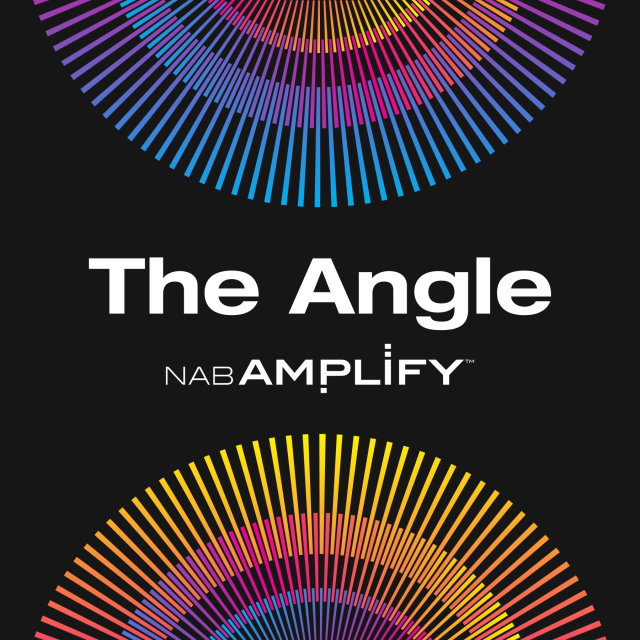
Artificial intelligence is reshaping the Media & Entertainment industry. What’s the best approach to ensuring AI’s disruption doesn’t upend the ecosystem? For “To AI, or Not to AI? The Real Value of Artificial Intelligence,” a panel of experts, moderated by Curt Doty, founder of RealmIQ, relayed strong (and often opposing) views as they contended with the issue. You can watch the full video below or read on for highlights:
Robert Tercek, CEO of General Creativity and host of the Futurists podcast, is an unabashed optimist who envisions a future where AI amplifies human creativity and productivity.
By contrast, Peter Csathy, founder & chairman of Creative Media, raises critical concerns about fair value distribution and the ethical use of AI, advocating for a balanced and equitable approach.
Meanwhile, Karissa Price, CMO of enterprise video AI platform Dragonfruit.ai, warns of economic disparities and societal disruption, emphasizing the human need for purpose in an AI-driven world.
Guy Bisson, executive director & co-founder of Ampere Analysis, offers a pragmatic view, recognizing AI’s potential to innovate while insisting that human creativity remains irreplaceable.
Together, their insights paint a complex picture of an industry at a pivotal crossroads.
The Transformative Potential and Economic Impact of AI
Overall, the panel emphasized AI’s deep integration into media workflows, its potential to democratize content creation, and the critical need to prepare the workforce for the changes it brings.
“Every single person in this room and frankly everybody with a smartphone uses artificial intelligence every single day, every time you use your phone, use AI, whether it’s to do a Google search or to get turn-by-turn directions from Google Maps,” Tercek said, describing how AI’s ubiquitous role in modern life sets the stage for deeper integration into media workflows.
In content creation, AI tools generate scripts, edit footage, and create visual effects, allowing creators to focus on higher-level tasks. AI-driven platforms analyze data to predict audience preferences, streamlining both pre- and post-production processes.
Streaming services like Amazon and Netflix use AI to enhance user experience through recommendation algorithms that analyze viewer behavior, increasing engagement and satisfaction. AI also transforms distribution by optimizing content delivery networks and providing real-time analytics on audience behavior, enabling targeted marketing and personalized content delivery.
Tercek envisions a future where generative AI tools democratize content creation, allowing more voices to participate in the M&E landscape: “Generative AI is going to continue to get better and better, the tools that we have today are the worst they’ll ever be. Within the next five years, one person will be able to generate a feature-length film using generative AI tools,” he predicts.
However, the impact of AI on jobs within the M&E industry is a critical concern. While AI automates routine tasks, it also creates new roles requiring human oversight and creativity. The key challenge is preparing the workforce for this transition, Price notes, highlighting the current disconnect between productivity and engagement.
“The average person today… is only working three hours a day. Why? Because they’re burnt out, because they were told they had to go to the office, because their child is sick, because they’re just not engaged,” she says, underscoring the need to rethink job roles and environments in the AI era.
Bisson takes a practical stance on AI’s impact on employment. “How many jobs have been lost in Hollywood to AI today? None. But let me be very clear. Every single job in Hollywood will be impacted by AI within the next few years,” he says.
Fair Use, Intellectual Property and Human Creativity
The use of copyrighted material in AI training is a contentious issue, with several high-profile lawsuits already in the works. Csathy emphasized the importance of a fair value distribution framework, stressing the need for ethical practices in AI development and making the argument that creators should be compensated when their work is used to train AI models.
“As artists, everybody who creates works has some kind of agency over it,” he insists. “If your art is used as an ingredient to create value for somebody else, then you should share in the value that’s created.”
On the other hand, Tercek points out that current fair use laws may support the use of data by AI, but acknowledges that this remains a contentious area likely to be settled in courts. “We don’t know whether that’s fair use or not. But they have 20 years of case law that suggests that it is fair use. We’re gonna find out; you and I don’t know the answer to that question,” he notes.
The discussion also delved into the role of AI in augmenting or replacing human creativity. While AI can generate content efficiently, the panelists agreed that the emotional and experiential aspects of human creativity remain irreplaceable.
“I do believe that there is a part of what it means to be human,” says Price, “the emotional part of us, the visionary, creative part of us that it will be a long time before AI can replace.”
Societal and Ethical Considerations
The adoption of AI across M&E raises significant societal and ethical considerations, particularly concerning economic disparities. The panelists collectively noted that as AI continues to evolve, it is imperative to consider its societal and ethical implications. Ensuring that AI benefits all segments of society and addressing the potential for economic disruption are essential for fostering a sustainable and inclusive future in M&E.
Price highlights the broader societal impacts of AI-driven productivity gains. Despite substantial advancements in technology, these gains have not been equitably distributed, she says, exacerbating economic disparities.
“Productivity has risen 65% over the last decades driven by technology, but wages have only grown 15%,” she notes. “This is about who the benefit of productivity and technological progress accrues to.”
The conversation also touched on the broader societal impacts of AI, with Price emphasizing the human need for purpose and the potential for AI to widen the gap between the wealthy and the working class. She warns that without careful management, AI could exacerbate existing social and economic inequalities.
“Our system is teetering on disaster,” she said. “Now you’re bringing technological change to make that even faster. AI is not going to make these choices for us. We can choose how we want to use it.”
Future Directions and Industry Adaptation
As AI continues to advance, its adoption within M&E is expected to deepen, bringing transformative changes to media production and distribution. Recognizing the evolving role of AI and its potential to shape the industry, the panelists shared their predictions and insights on future trends.
Bisson compared the rise of AI to previous technological advancements that democratized content creation. “Digital cameras and YouTube opened up the ability to produce content to a 15-year-old in their bedroom. Did it destroy Hollywood?
“No. AI is providing tools for creativity that will at least equal what we have today in terms of opportunity,” he remarked. His perspective suggests that AI will not replace traditional media but will instead offer new tools and opportunities for creative expression, much like digital cameras and online platforms have done in the past.
Navigating the AI landscape requires media companies to adopt AI responsibly and ensure fair value distribution. The panelists emphasized the importance of staying ahead of the curve by embracing AI innovations while addressing ethical and economic considerations. This balanced approach, they say, is crucial for fostering sustainable growth and maintaining the integrity of creative industries.
Csathy stresses the need for ethical practices and fair value distribution in AI adoption. Ensuring that creators are adequately compensated when their work is used to train AI models is essential for maintaining a fair and equitable industry. Price echoes this sentiment, emphasizing that companies must consider the broader societal impacts of AI and strive to create a more inclusive future.
The panelists agreed that while AI offers significant opportunities, it also presents challenges that must be carefully managed. By adopting a balanced approach to innovation and ethical considerations, the Media & Entertainment industry can harness the full potential of AI while mitigating its risks.
This sensible approach can ensure that AI-driven advancements contribute to what we all want: a vibrant, equitable and sustainable future for all stakeholders in the industry.

Why subscribe to The Angle?
Exclusive Insights: Get editorial roundups of the cutting-edge content that matters most.
Behind-the-Scenes Access: Peek behind the curtain with in-depth Q&As featuring industry experts and thought leaders.
Unparalleled Access: NAB Amplify is your digital hub for technology, trends, and insights unavailable anywhere else.
Join a community of professionals who are as passionate about the future of film, television, and digital storytelling as you are. Subscribe to The Angle today!



Discussion
Responses (2)